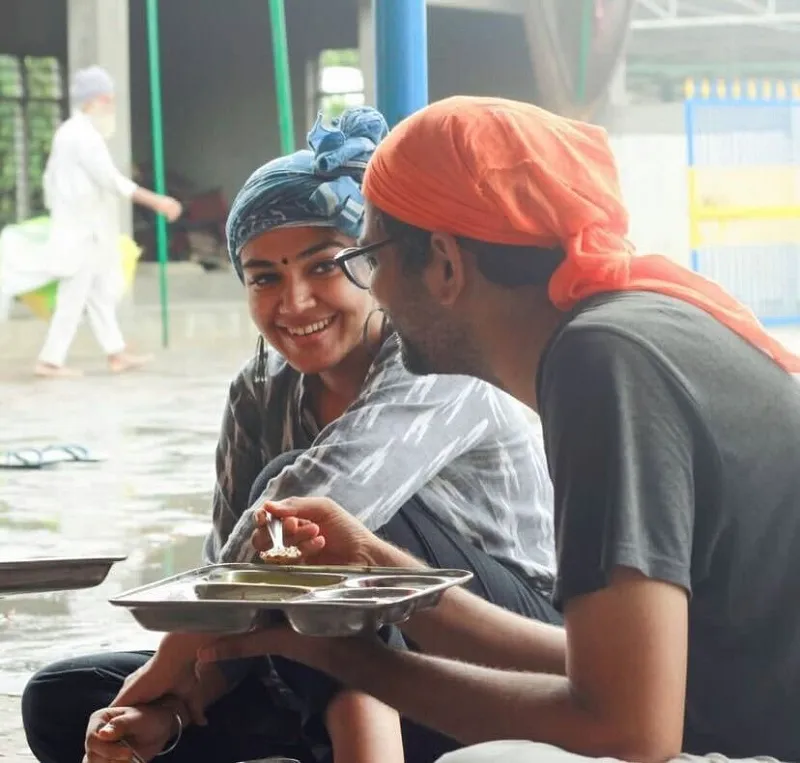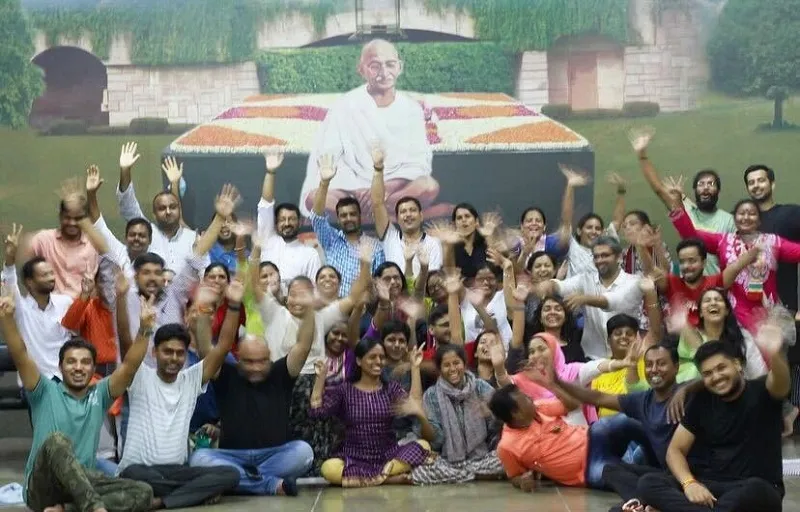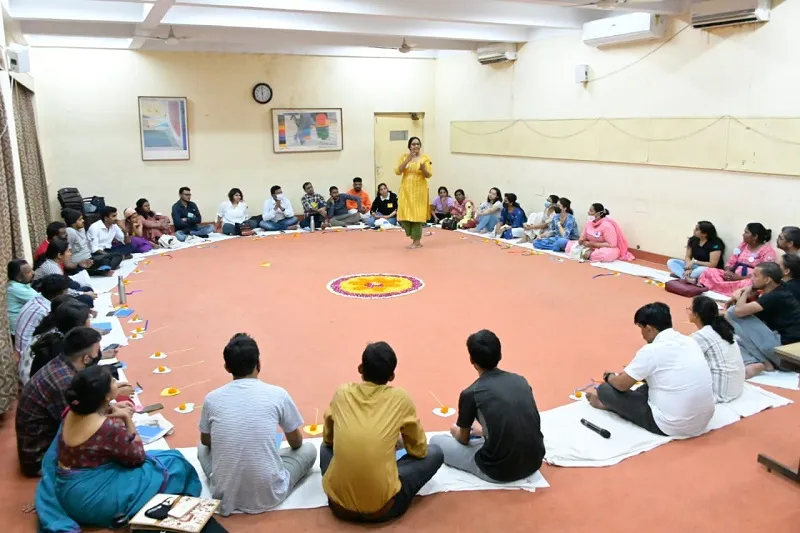Meet this social entrepreneur, set out to build a new-gen of political leaders in India
On a journey of creating a pool of principled political leaders in India, Hemakshi Meghani, Co-founder of the Indian School of Democracy, talks about her journey into advocacy politics, ISD's operations, and more.
India has the largest population of youth in the world — with 65 percent of its population under the age of 35 years. Yet, the average age of Members of Parliament (MPs) in Lok Sabha is 50 years. A meagre six percent of MPs are below 35 years old.
Likewise, women face equal resistance in Indian politics. In the last Lok Sabha elections, the country secured the highest number of women MPs, at 14 percent.
While young people don’t seem to aspire to be in politics, and women face preposterous barriers, a young kid in Gujarat’s Ahmedabad confessed to becoming a politician in the 90s when asked by her parents in fifth grade.
Wanting to be a politician
Hemakshi Meghani, co-founder of the Indian School of Democracy, tells HerStory her long-standing desire to work for Indian politics. She says, “The thought of doing something for the society and seeing politics as a medium of change persisted all through my growing up years. Of course, I didn’t have the language to articulate it back then, but looking back, it feels like a thread that tied everything I did in my career together.”
A 2011 Teach For India fellow, Hemakshi worked with an edtech startup on a policy of making government schools more accessible to street kids. She also worked with political strategist Prashant Kishor before he started I-PAC to work with governments in running campaigns. I-PAC is a cross-party political advocacy group that helps Indian political parties in their campaign strategy.
While pursuing her Masters in Public Policy from Harvard Kennedy School in 2011, she was part of the Harvard Square to the Oval Office programme, which trains women to get into politics. This was her first brush with structure in politics.
Launching Indian School of Democracy
Equipped with the knowledge she gained at Harvard and working with Building Resources Across Communities (BRAC) in Bangladesh and the Boston Consulting Group on social impact and development practices, she decided to start the Indian School of Democracy in 2018 with Prakhar Bhartiya, former CEO of Youth Alliance.

Hemakshi and Prakhar sharing a laugh during one of ISD's programmes
“I wanted to do something that marries gender, leadership, and politics,” says Hemakshi, adding we need role models who are current, young, and relatable to get into politics.
ISD — the not-for-profit organisation — focuses on enabling people interested in politics to understand how to go about it from a grassroots level in a principled manner.
At present, 43 percent of the parliamentarians have a criminal record against them, of which 29 percent have serious criminal charges, including rape, murder, etc., against them.
“If we want good, smart, and principled people to get into politics, there need to be pathways enabling them to work towards their goal, and ISD provides that. So while I wanted to be a politician, this seemed like a much bigger goal than me and would hopefully enable 1000s of leaders through ISD. Moreover, it will also activate an ecosystem to reach our audacious goal of having at least 25 percent of principled elected representatives,” she says.
What does it do?
A non-partisan organisation, ISD conducts programmes for aspiring grassroots political leaders. At present, it is running three programmes – The Good Politician, She Represents, and Democracy Express.
The gender-neutral programmes emphasise having 50 percent women representation. She Represents is a seven-day online women-only learning programme for aspiring women political leaders. The programme nurtures women to join politics by building concrete political skills and overcoming inner and systemic barriers.
On how the organisation remains non-partisan, Hemakshi explains, “Our commitment is to the values enshrined in the preamble and the constitution, and also the process of making the constitution, which was an attempt to listen to different voices. We don’t call ourselves neutral but non-partisan.”
ISD hopes to be a complete crowd-funded organisation. At present, it is supported by organisations like EdelGive Foundation and individual philanthropists like Ujwal Thaker and Venkat Krishnan. It has been incubated under The Nudge and InnovatED Hemakshi claims that as a policy, ISD does not want more than 15 percent of its funding coming from any one person or organisation to remain a democratic platform.

One of ISD cohorts
Challenges of being a female entrepreneur
While it’s a great time to be a woman entrepreneur, thanks to the incubators and platforms supporting women, Hemakshi says she has faced her share of the brunt, where in meetings, she is often gets asked if she is the founder.
She says, “If my co-founder is in the room, then all the questions are directed to him, assuming he has all the answers. As if I don’t know anything about politics. I handle finances, yet all the queries go to him. If he is in the room, the time people give us to listen to our pitch increases!”
Moreover, since politics is male-dominated, people aren’t used to seeing women. Hemakshi adds, “I’m writing a piece about the lack of women volunteers in campaigns. When I worked with women MPs, mostly the MP and I would be the only two women during the campaign trails in a sea of men.”
While Hemakshi decodes these struggles as they come, she doesn’t get bogged down by the pressure.
The accomplishments
To gauge growth, the gestation period in politics is long as elections happen every five years. Boasting over 200 alumni, Hemakshi shares how some of the ISD’s alumni have contested grassroots elections.
“These 200 people come from 26 Indian states, and peer learning is a big takeaway. I recently came back from Odisha, where one of our alums was contesting in the Zilla Parishad election, and it’s marvellous the way he is campaigning,” Hemakshi says.
“People do ask for a bribe before they vote, but he asked them if they want money or someone who works for them? To see it come alive is a definite victory,” she shares.
Another alum, Priyanka, ran for the Mukhiya election in Sitamarhi, Bihar. During her campaign, if she saw anyone having a meal, she would patiently wait outside and ask their permission before entering their house.
Archana, another ISD alum, will contest in the upcoming Greater Bengaluru Municipal Corporation (Bruhat Bengaluru Mahanagara Palike) election. She is working with the transgender’s community, mobilising them to volunteer for her.
“While these may seem small efforts, imagine if our leaders had the compassion and empathy to do it,” Hemakshi says.

During one of the sessions at the Democracy Express programme of ISD
While people measure ISD’s success by the number of alumni who won elections, Hemakshi says they want to measure it by the political path they take as well.
“Eight of our alumni are contesting elections this year at the panchayat and council level, and another alumnus, Dolly, won a panchayat-level election last year in Bihar. She won by listening to people, which hasn’t happened in politics in a long long time,” she adds.
Advising women wanting to make a mark in social entrepreneurship, she asks them to create a community of people around with mentors who have experience working in their respective fields.
“Ask for support and help, which as women we hesitate, because of various reasons, including self-doubt and the drive to over-deliver. It’s important to have the awareness that you may not know a lot, and you need to ask for help. Secondly, entrepreneurship is a fine balance between hard skills and inner (soft) skills. Ensure you are equipped with all the skills for-profit businesses have better developed so you can use it to build not-for-profit businesses too,” Hemakshi shares.
Edited by Suman Singh









